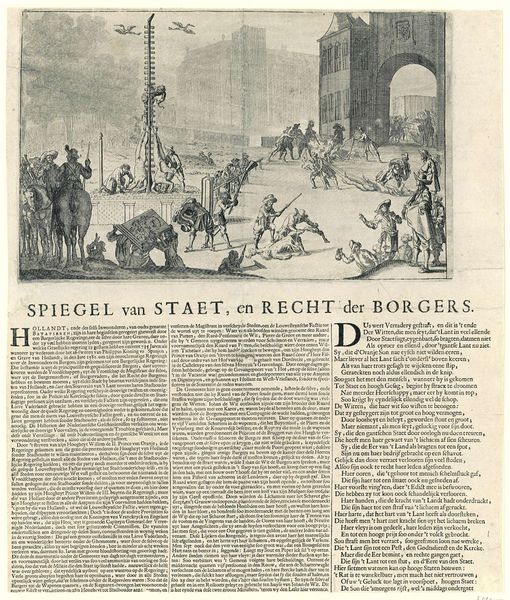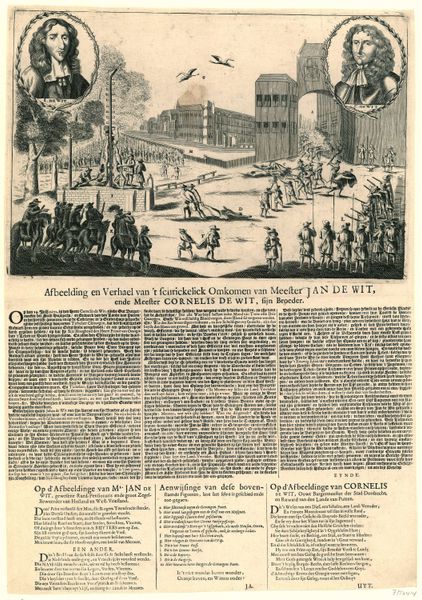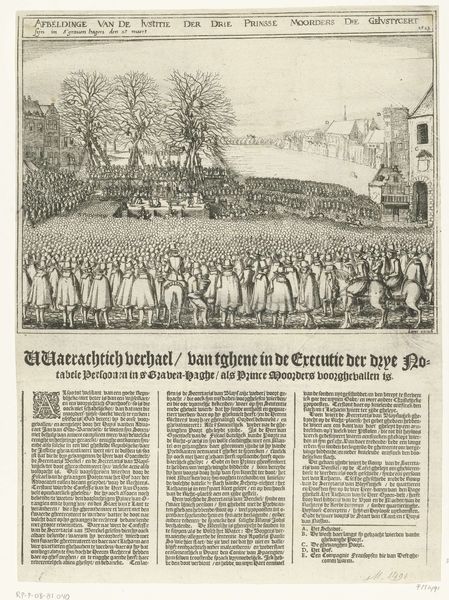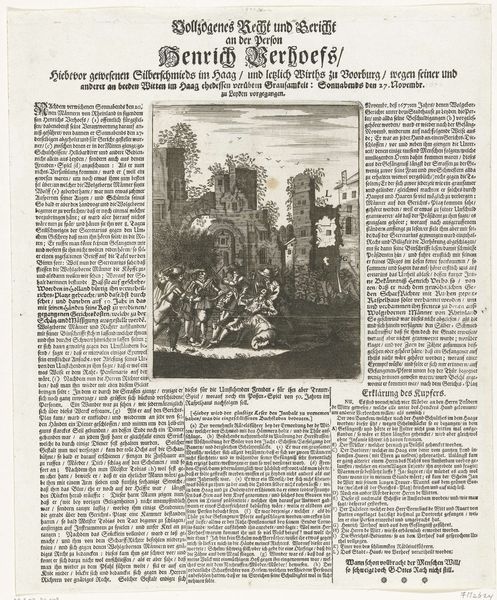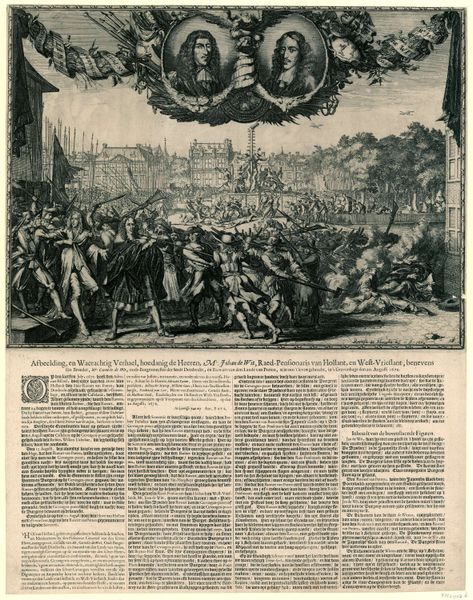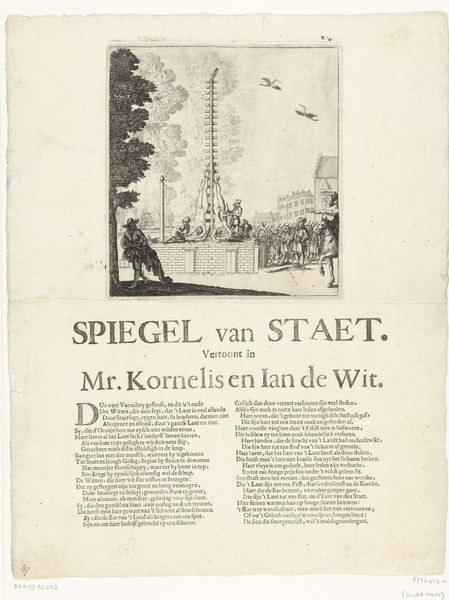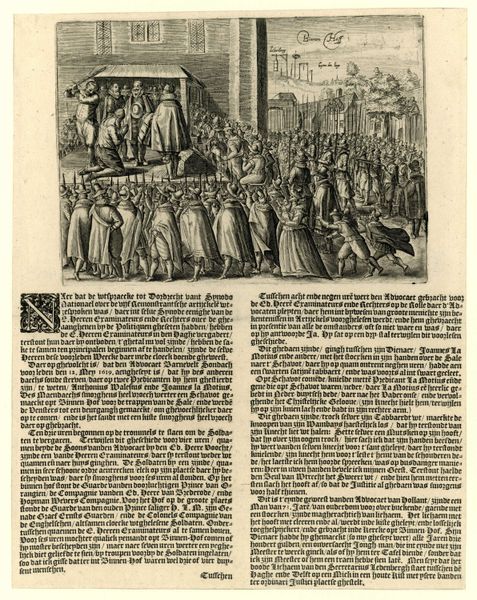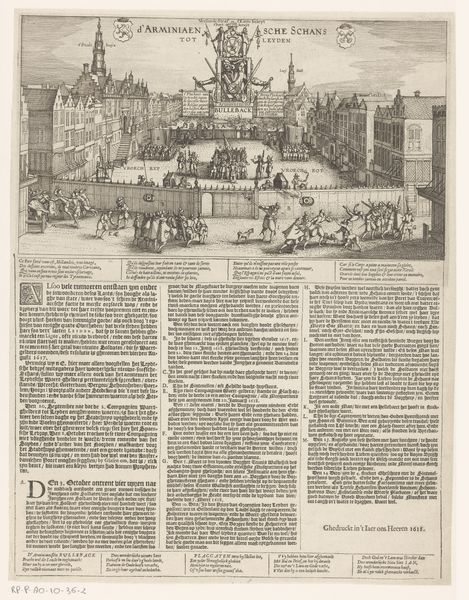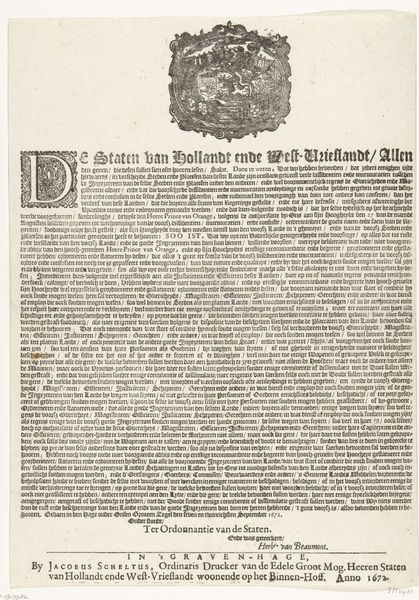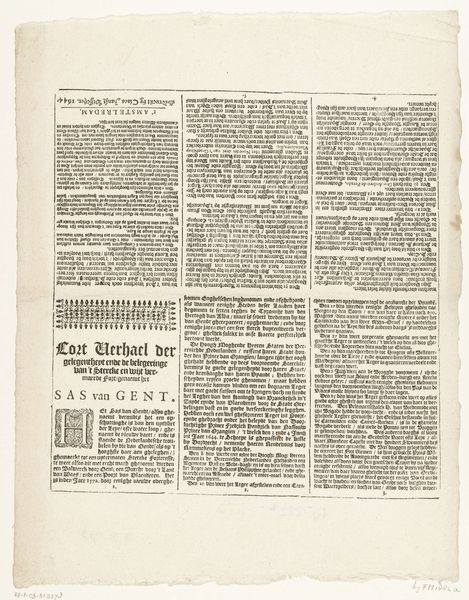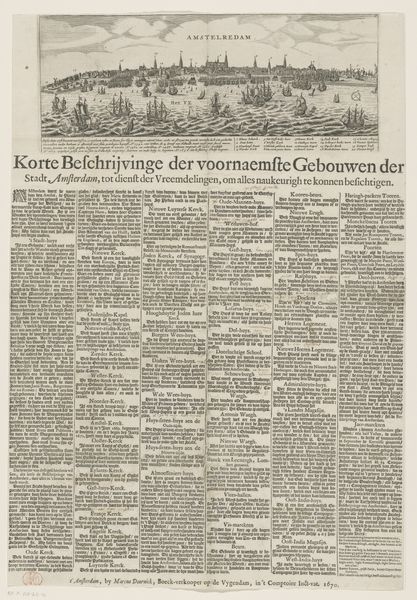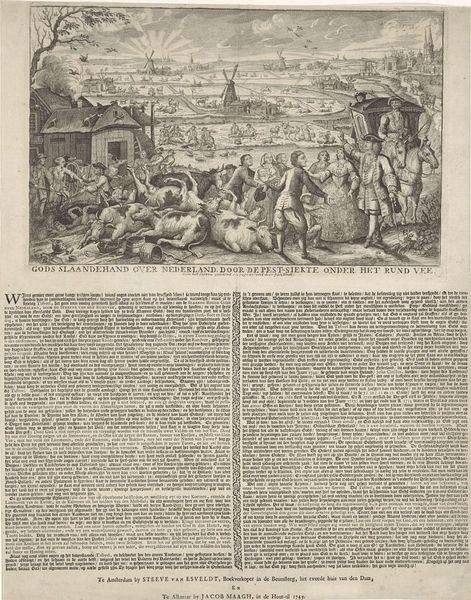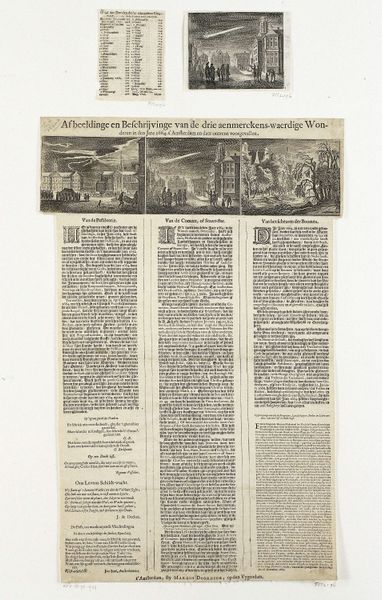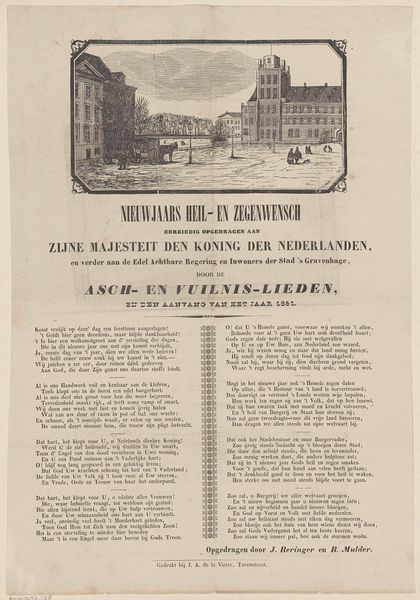
Dood van de gebroeders De Witt en de verminking van hun lichamen, 1672 1672
0:00
0:00
anonymous
Rijksmuseum
print, engraving
#
narrative-art
#
baroque
# print
#
figuration
#
line
#
cityscape
#
genre-painting
#
history-painting
#
engraving
#
realism
Dimensions: height 457 mm, width 360 mm
Copyright: Rijks Museum: Open Domain
This engraving, made in 1672 by an anonymous artist, depicts the gruesome deaths of the De Witt brothers in The Hague. The central scene features their mutilated bodies, a stark symbol of political vengeance and societal breakdown. Note how the act of public desecration echoes rituals of dominance and defilement found across cultures. Consider the Hanged Man tarot card, where the inverted figure symbolizes sacrifice and a world turned upside down. These acts are born from humanity's darkest impulses, resurfacing in myriad forms. The image triggers profound emotional responses. The collective frenzy suggests a release of pent-up societal frustrations. This psychological dynamic is timeless, echoing the orgiastic rites of Dionysus in ancient Greece, where societal norms were temporarily suspended, allowing for the expression of primal instincts. The engraving serves as a potent reminder of how symbols of violence persist through time, reflecting the cyclical nature of history and the enduring power of human passions.
Comments
No comments
Be the first to comment and join the conversation on the ultimate creative platform.
